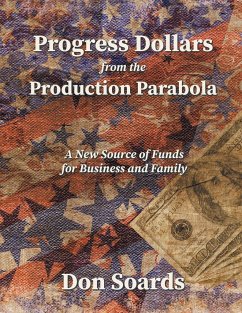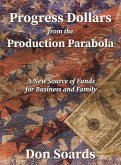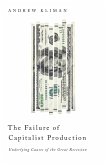Since the industrial revolution started in 1800, machines have been taking people's jobs. For the first two hundred years we prospered from the increasing efficiency. However, in the year 2000, we reached a tipping point where the new technology has taken so many jobs that we can no longer afford to buy all that we can produce. By the year 2006 our gross domestic product per person started dropping and has continued to drop ever since. The economic future of the American middle class looks bleak, especially for younger generations. Old tax-and-spend strategies will just move money from one group of declining Americans to another group declining Americans. Raising the minimum wage will result in entrepreneurs replacing employees with ever cheaper, improved machines. American's collective purchasing power is on a downward spiral with every labor-saving invention. Who do these corporations think is going to buy their stuff after they lay us all off? Our dilemma is not the fault of corporations or super-rich people. We are at a cross-road and need to realize that our predicament is actually a blessing. The large gap between our purchasing power and increased production has created a new, untapped pot of money I call Progress Dollars. Progress dollars are the amount of money we need to give adult American consumers so they may purchase a maximum amount of goods without causing inflation. In this book I use the Production Parabola to illustrate the concept. Currently, I estimate that we can give every adult American a monthly automation annuity of $500 per month. This amount will grow slowly at about $25 per month every year. This amount will help middle class and poor Americans when added to their suppressed wages or Social Security. Progress dollars are not from tax-payer money. I cover this concept in depth in the book. Do we continue to get poorer, becoming a divisive society fighting among ourselves for a share of an ever smaller pie? Or do we adopt progress dollar capitalism where every individual is economically better off? The choice is ours.
Hinweis: Dieser Artikel kann nur an eine deutsche Lieferadresse ausgeliefert werden.
Hinweis: Dieser Artikel kann nur an eine deutsche Lieferadresse ausgeliefert werden.








